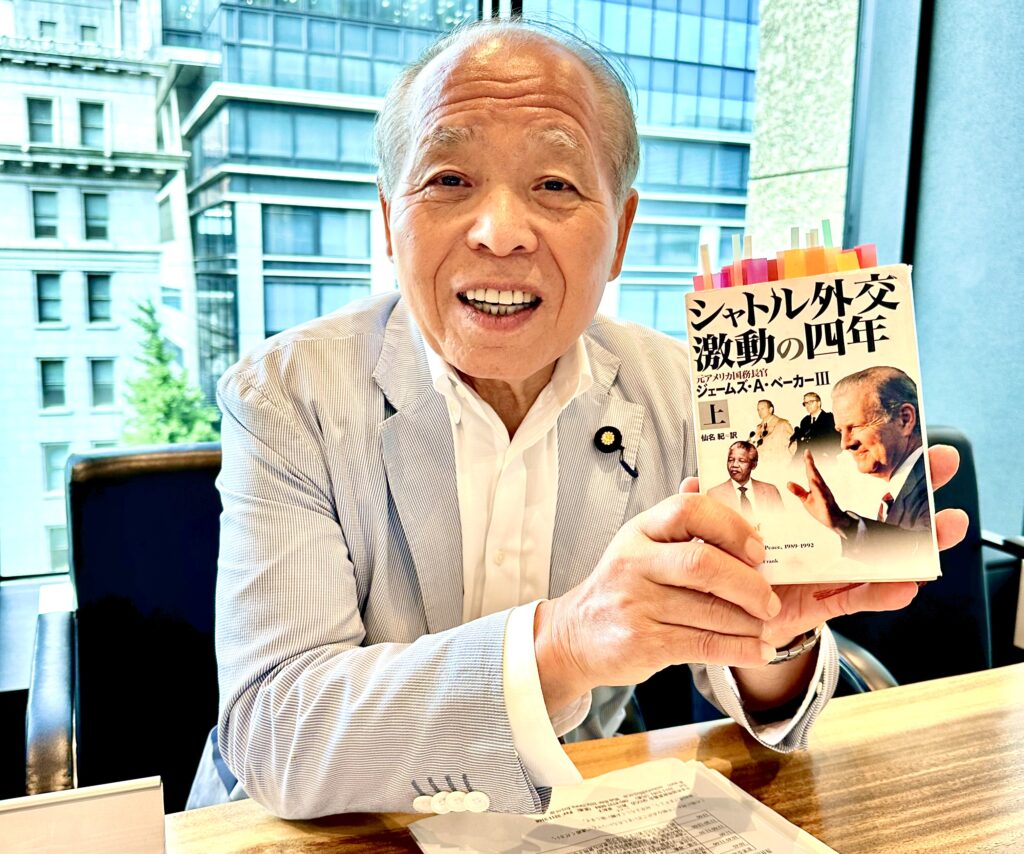
- ARAB NEWS
- 06 Jul 2025

TOKYO: Veteran Japanese politician SUZUKI Muneo says Japan is hurting itself by following America’s lead on sanctions against Russia.
Suzuki traveled to Russia at the end of July for a series of meetings with top Russian officials, but his trip was not sanctioned by the Japanese government.
“Three years ago, after the issue in Ukraine began in May, at that time, US President Joe Biden stated when putting in place economic sanctions that within two months Russia would be forced to give up,” Suzuki told a press conference at the Foreign Correspondents’ Club of Japan. “However, what has the result of that been in the more than two years that have passed since then? We can see that Russia’s economic power is only continuing to increase. Therefore, it can be said that these economic sanctions have no meaning, therefore, they should be ended.”
Suzuki also said the sanctions were hurting his home prefecture of Hokkaido, the northern island that has the strongest connection to and the greatest trouble with Russia. Japan’s Northern Territories near Hokkaido were seized by Russia at the end of World War II and a peace treaty between the two countries was never concluded as the Japanese wanted the islands back.
“The economic impact on Hokkaido, and this goes for the entirety of Japan as well, has seen an increase in oil prices, which impacts the overall costs here in Japan as well,” Suzuki said. “This is of course not only Japan, but a global trend. So, I believe that, particularly for Japan, as a country which does not have its own energy resources, this is an issue which is of particular concern. Therefore, if the situation in Ukraine could come to an end, we would see a lowering in the cost of oil and subsequently a lowering in the cost of various things in Japan as well.”
Suzuki says Russian oil is still being bought by Japan, as well as wheat and seafood, thanks to “consideration” from Russia. He believes that if Japanese Prime Minister KISHIDA Fumio would take a constructive approach to Russia rather than following America’s destructive approach, Russia’s attitude would be far softer for Japan and could lead to ceasefire negotiations. Suzuki admitted he has had conversations with the Prime Minister on Japan’s approach. He also conveyed messages from Russian President Vladimir Putin to the Foreign Ministry but regrets there was no change in Japan’s position.
“Putin stated that if Japan were to open the window to set the table for a dialogue, then he is ready to accept this. I was very relieved to hear these words. However, even despite the fact of these discussions taking place, Japan has not made any moves regarding my reports to the Ministry of Foreign Affairs. I suggested that this was the time that Japan should be taking some steps, should making some moves. However, this has not happened. I believe that this shows how weak, unfortunately, the Japan’s diplomatic capability is.”
Suzuki then referred to the book “Shuttle Diplomacy” by for US Secretary of State James Baker, a book, he said, that is recommended to Japanese civil servants in the Foreign Ministry.
“It’s clearly written in this book the different positions and the statements, which were made by the leaders of the West, that NATO would not expand even an inch towards the east,” Suzuki said.